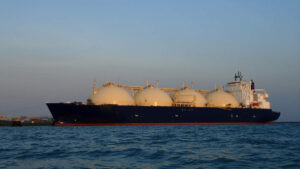Crude oil is swinging back up as supplies tighten

Crude oil prices are climbing. Pic: Westend61 via Getty Images
Crude oil prices have swung back up past the US$75 mark with the benchmark Brent crude trading at US$76.73 (A$105.96) per barrel, up from US$71.52 earlier this week after US stockpiles dropped and Libya declared a force majeure on its exports.
US crude inventories fell 4.7 million barrels in the week to 17 December to 423.6MMbbl, well above a 2.7MMbbl drop expected by analysts polled by Reuters, as companies draw down in inventories to reduce their tax bill.
Matters were not helped by Libya declaring force majeure on crude exports from two ports after production from four oilfields were shut-in by the Petroleum Facilities Guard that is tasked with protecting them amidst chaos surrounding its presidential elections.
However, the concerns about oil supply stem from something a lot more fundamental, years of underinvestment that is running straight up against demand that’s likely to return to pre-pandemic levels – immediate impacts from the surge in Omicron cases notwithstanding.
This is best highlighted by Saudi Arabia, one of the biggest beneficiaries of high crude prices, warning that that global oil production could drop by up to 30 million barrels per day, or about 30% of current daily global supply, by 2030.
“We’re heading toward a phase that could be dangerous if there’s not enough spending on energy,” Bloomberg quoted its oil minister Prince Abdulaziz bin Salman as saying.
Crude oil demand to remain high
The potential reduction in supply is concerning given that most forecasters agree that current demand levels are likely to be sustained for at least another decade.
While renewables are certainly starting to take up a larger piece of the energy pie, the use of oil is still very much entrenched globally.
After all, there are still millions of cars on the roads which are unlikely to be replaced anytime soon, planes will still need aviation fuel and ships will still need diesel to support the global economy.
This is not including other oil products such as solvents, synthetic fabrics and roads.
Weaning the world off oil will mean finding substitutes for all of these applications and ensuring that said substitutes are able to meet demand, no mean feat when all’s said and done.
Related Topics

UNLOCK INSIGHTS
Discover the untold stories of emerging ASX stocks.
Daily news and expert analysis, it's free to subscribe.
By proceeding, you confirm you understand that we handle personal information in accordance with our Privacy Policy.








